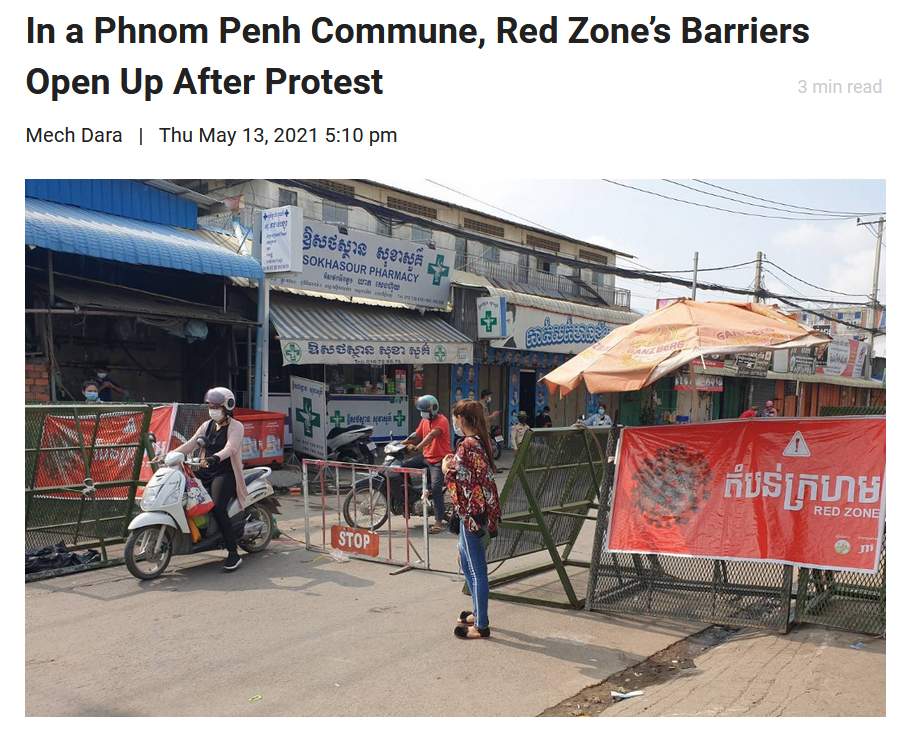
Post-Lockdown Day 8

Charlie Dittmeier's Home Page

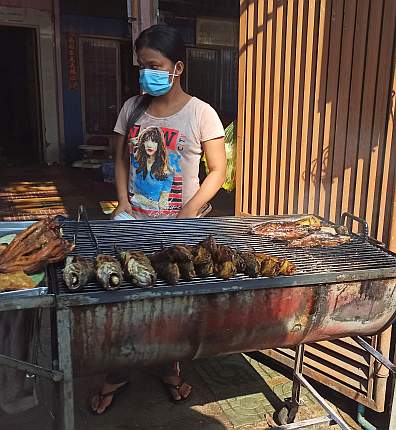
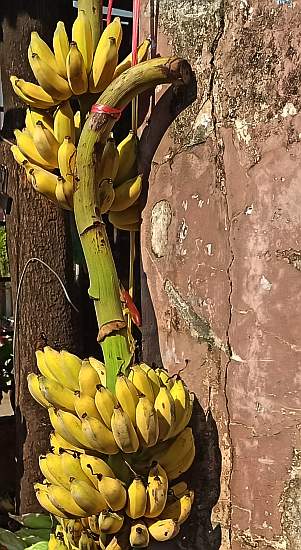
There are lots of new sights and scenes around town because of Covid-19 and all the lockdowns and restricted areas. There are some bananas hung up for sale on a wall along a street near the big market that has been closed because of many infections.
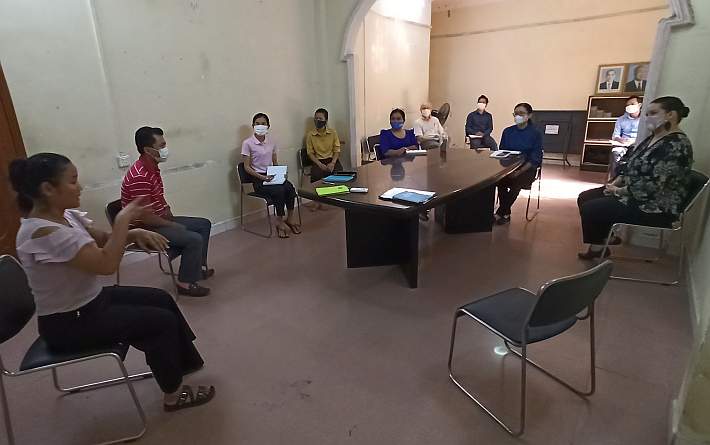
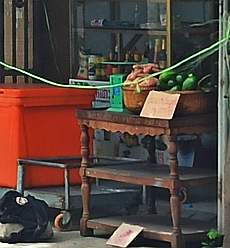
During the lockdown the big open public markets were closed so resourceful people opened up little stalls in their neighborhoods to supply the needed fresh meat and vegetables–and to make a little money. Click here to see the results.
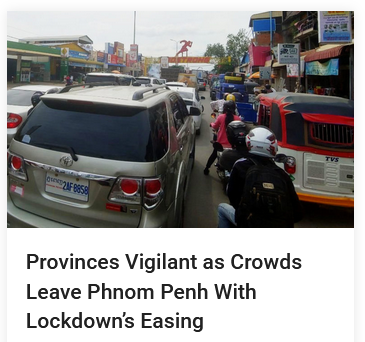
On Wednesday three weeks of lockdown ended for Phnom Penh and there was an explosion of pent-up energy and activity as people were able to get out of their houses after a long confinement. Traffic noticeably increased as pictured here on a street leading out of town.
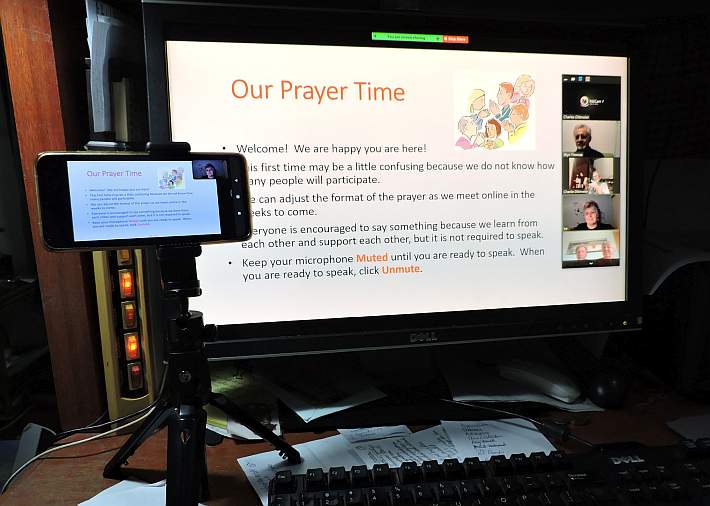
Some of the parishioners of the English Catholic Community suggested that we have an online prayer time and we tried the first one tonight. We had eight or nine people–on three continents!
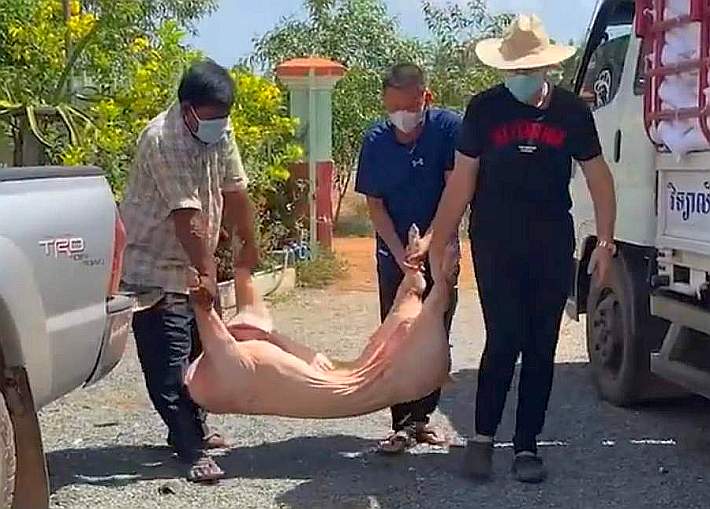
Bishop Olivier (with hat) has developed a creative and aggressive campaign for food aid for people hungry because of the Covid-19 lockdown in place in Phnom Penh. Here he is at the center where they prepare rice boxes and bulk food. [Have you ever before seen a bishop carrying a pig carcass? 🙂 ]
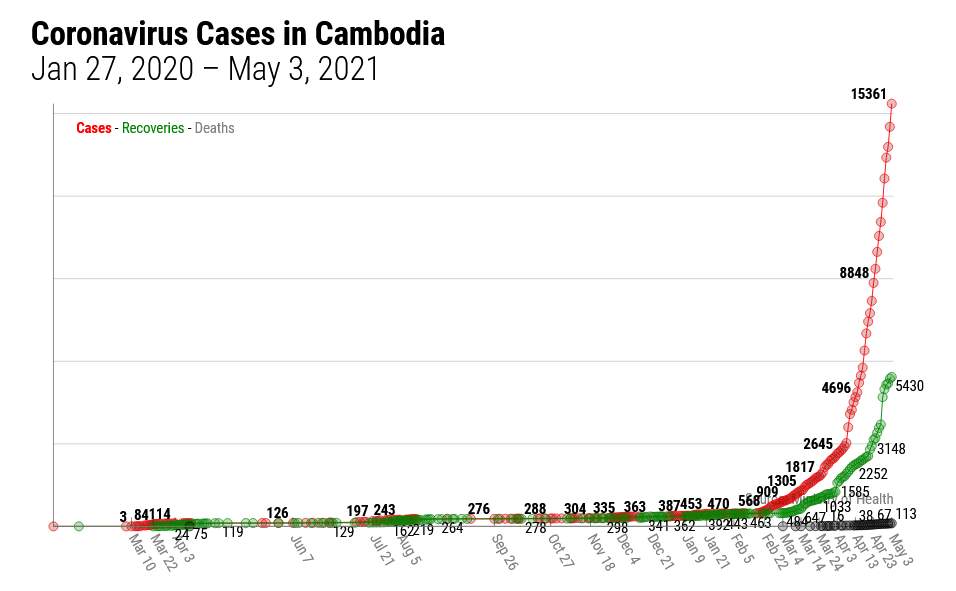
In this graph from the Voice of Democracy website, you can see the terrible effect of two people, infected with Covid-19, who ran around infecting others.
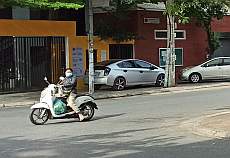
During the lockdown, we are to stay at home except for obtaining food and medical care. I went out after ten days to get more food because I am sure the lockdown will be extended and we may even become a Red Zone and will not be able to go out for food. Click here for photos of the food trip.